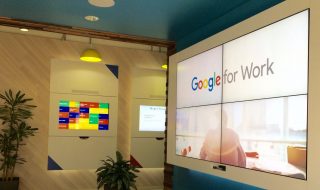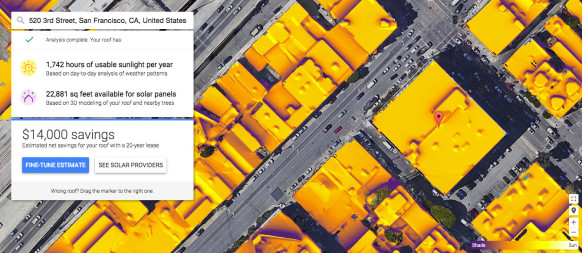
If you are considering making the switch to solar power in your home, the initial investment cost may be large enough to give you cold feet. Even with an understanding that using solar panels to generate electricity is an excellent way to reduce your monthly utility bills, the cost of purchasing and installing panels may seem too great to justify the expense. Here’s how to understand how much money you’ll save, and when you can expect it to surpass what you’ve already spent.
Understanding the Factors Influencing Your Monthly Utility Savings

How Much Can You Save With Solar Panels? Just Ask Google
While you can be sure that solar will save you money on your monthly utility bills, it is impossible to give an exact number due the to many factors influencing just how much you will save. As a homeowner, you can plan to save anywhere between $44 and $187 each month on heating and cooling your home, operating your lighting, and running the appliances in your home. The variances in savings is influenced by your location, the number of panels on your roof, the hours of daylight where you live, and even the pitch of your roof. Added costs, such as fees put in place by your local electric company, can also prevent you from getting the maximum savings on your utility costs.
Starting Off on the Right Foot: Making the Initial Investment
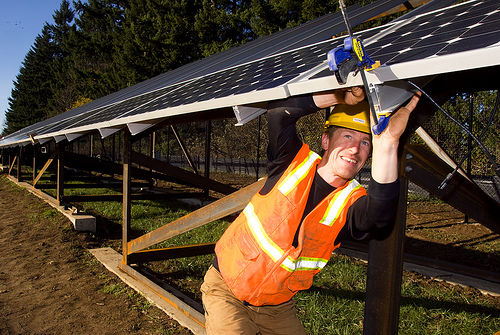
DIY Home Solar: Planning a Solar Array (Beginner’s Guide)
When you are purchasing and installing your new solar power system, it is crucial that you start off on the right foot. Saving as much as possible on the cost of your system will directly affect how quickly your panels will start paying you back.
Typically, a solar power system costs between $20,000 and $35,000. Without financial assistance of any kind, this large of sum can take anywhere from five to twenty years to pay in full. However, a wide range of financing options and the extension of solar installation tax credits make it possible to speed up the process of solar paying you back. For instance, cities like Chicago are offering as much as 30% in tax incentives to homeowners who install solar panels before the end of 2016. Before making a purchase, be sure you research the solar incentives made available by city, state, and federal governments, as well as grants being offered by local power companies.
A Snapshot of Twenty Years with Solar
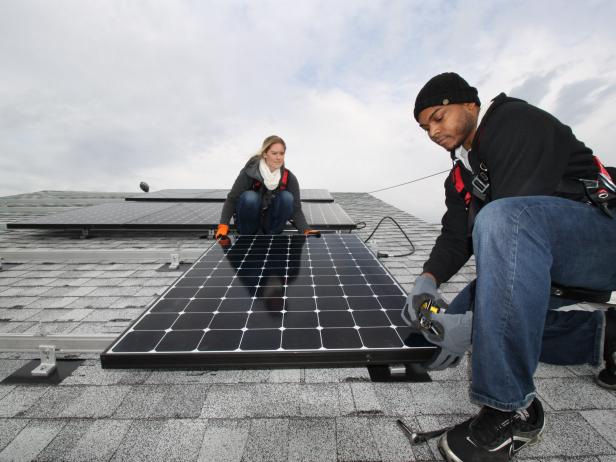
Getting Started With DIY Solar Power
The climate where you live, and how much you spent on your solar panels, are among the biggest factors influencing just how much solar panels will save you. However, when you look forward to the next twenty years, one thing is certain: solar panels will save you money in the long run. Over the course of twenty years, homeowners like you can save between $8,500 and $64,000 on the cost of electricity for their home.
Return on Investment: What if You Need to Sell Your Home?
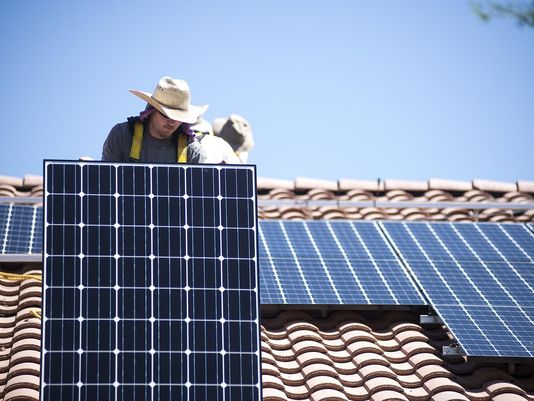
Solar can raise home values — if you own the system
One concern you may have is recouping the cost of installation if your situation changes and you need or want to sell your home. Return on investment varies greatly between different home improvements, but solar is among the most promising for you if you plan to sell your home. Typically, you can expect to recoup an estimated 97 percent of what you spend on buying and installing solar panels on your home.
Even though the exact savings depend largely on where you live and what you spend on your panels, solar panels are always a good investment for you home. Of course, it’s important that solar panels will save you money, but the best part is that solar is a much more environmentally responsible method for generating electricity for your home.




